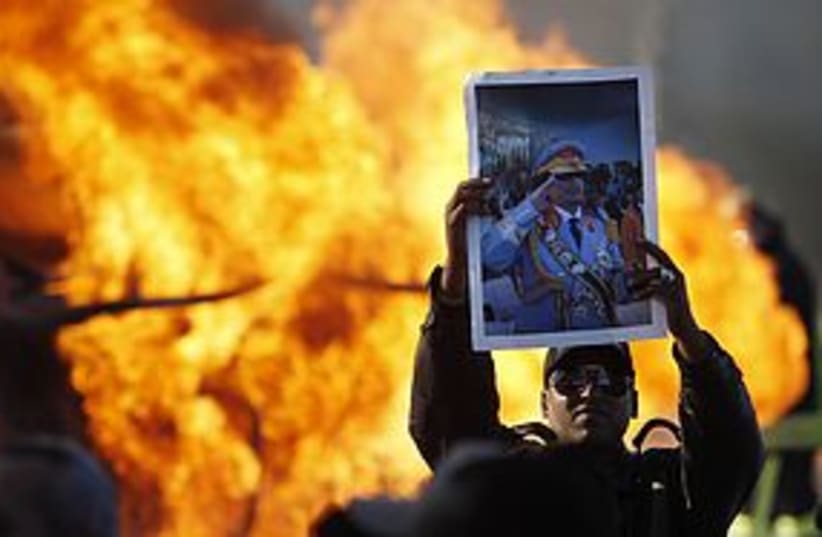RELATED:Clinton on Libya: We're taking no options off the tableRice:US to maintain pressure on Gaddafi till he leavesThe USS Kearsarge and the USS Ponce entered accompanied by tugs to secure their passage, the canal official said.Also on Wednesday, forces loyal to Muammar Gaddafi seized the eastern Libyan oil export terminal of Marsa el Brega, rebel officers in the region told Reuters, the first indication of a concerted fight back by the Libyan leader in the rebel-controlled east.Later on Wednesday rebels took back control Brega and forces loyal to Muammar Gaddafi staged a "hit and run" attack on the nearby town of Ajdabiyah, a rebel coalition spokesman said."We are probably going to call for foreign help, probably air strikes at strategic locations that will put the nail in his (Gaddafi's) coffin," Mustafa Gheriani, a spokesman for the rebel February 17th Coalition, told Reuters."They tried to take Brega this morning, but they failed. It is back in the hands of the revolutionaries. He is trying to create all kinds of psychological warfare to keep these cities on edge," he said.About Ajdabiyah, he said the town was " basically stable and our people are grouping to deal with any major assault. For now, it is still just hit and run."
The United States said Libya could sink into civil war unless Gaddafi quits amid fears that the uprising, the bloodiest against long-serving rulers in the Middle East, could cause a humanitarian crisis.Gaddafi remained defiant and his son, Saif al-Islam, warned the West against launching military action. "We are ready, we are not afraid."He added that the veteran ruler would not step down or go into exile.The repositioning of US ships and aircraft closer toLibya was widely seen as a symbolic show of force since neitherthe United States nor its NATO allies have shown any appetitefor direct military intervention in the turmoil that has seenGaddafi lose control of large swaths of his country.On Monday the USS Barry, a destroyer, moved through the SuezCanal and was now in the southwestern Mediterranean."We are looking at a lot of options and contingencies. Nodecisions have been made on any other actions," DefenseSecretary Robert Gates said, noting the United Nations had not authorized the use of force in Libya.On Wednesday Libyan State TV reported that Gaddafi replacedtwo of his ministers who had defected to support the uprisingseeking to oust him.Gaddafi put in place Masoud Abdel Hafiz instead of AbdelFattah Younes al Abidi as interior minister and replacedex-justice minister Mustafa Mohamed Abud Ajleil with MohamedAmhamad al-Qamoudy.Mohamed Aqri Al-Mahgouby replaced Abdul-Rahman al-Abbar asprosecutor general, who had also resigned and joined theopposition last week.On Tuesday the United Nations General Assembly unanimously suspended Libya's membership in the UN Human Rights Council.UN Secretary General Ban Ki-Moon said, "the world has spoken with one voice: we demand an immediate end to the violence against civilians and full respect for their fundamental human rights, including those of peaceful assembly and free speech."With Tuesday's vote, it marked the first time that the UN has suspended membership of a country in the Human Rights Council since it was created in 2006.Libya has been a member of the Council since May of last year.
